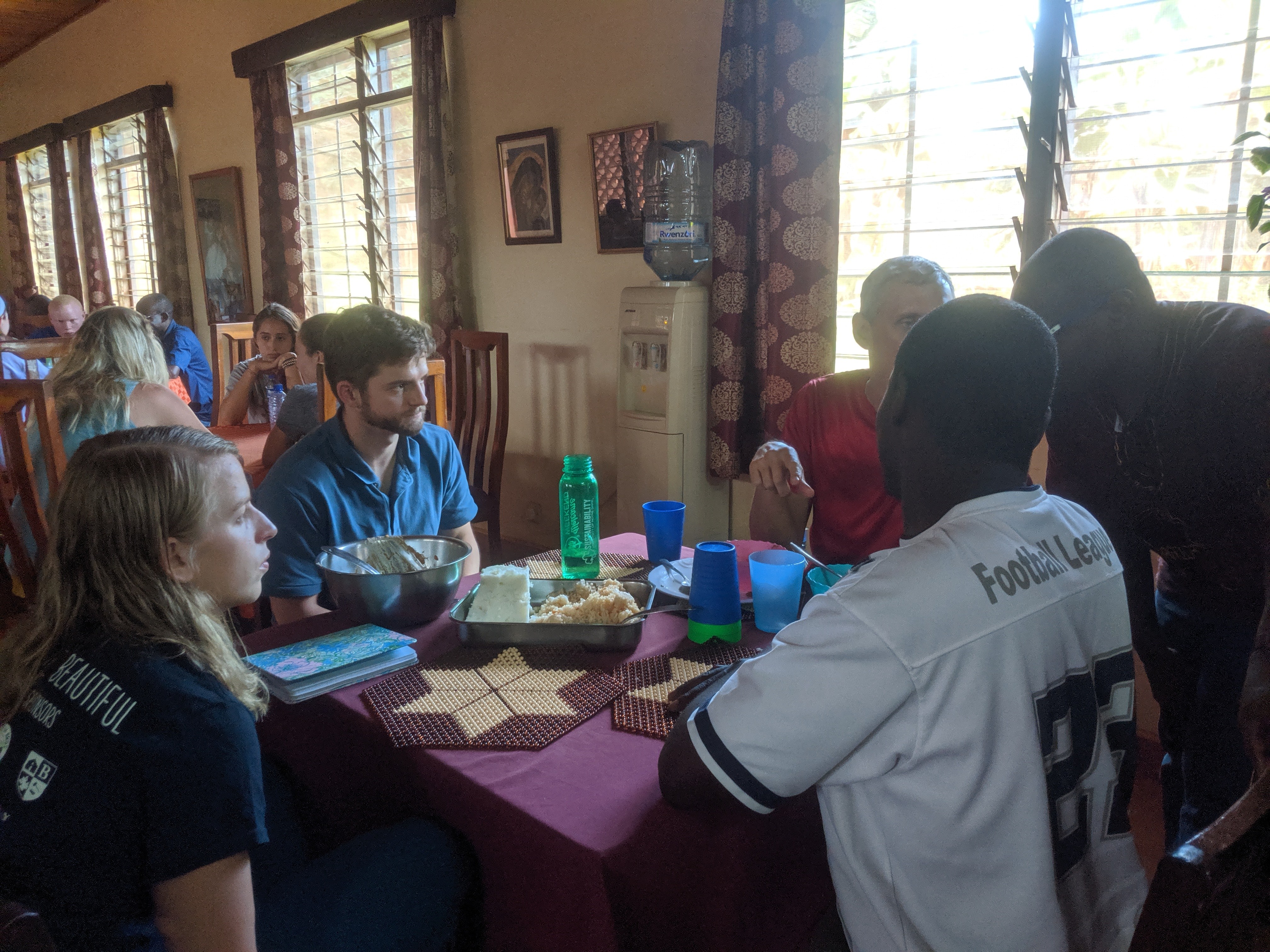 It’s my last full day in Africa, and unfortunately I do not yet have a grand unified theory of the Uganda trip. I think that’s where I’m supposed to be right now.
It’s my last full day in Africa, and unfortunately I do not yet have a grand unified theory of the Uganda trip. I think that’s where I’m supposed to be right now.
This is going to be a little rambly, because I’m clarifying my thoughts as I’m writing them. I’ve dealt with more surprising, challenging, and confusing experiences that I can really handle right now, so I’m going to start with some concrete points in time order, and I’ll do the abstractions and applications later.
-The kindness and hospitality that the Ugandan people displayed to our group is unlike anything I’ve ever seen before.
-Many of our interactions with the people of Uganda have had some musical component, and the display of broad musical competence (in Church or school assemblies) blows away anything I’ve seen in America.
-The students at St. Ursula’s (a school for the disabled) were loving and lovable in way that was seriously powerful and completely unfamiliar to me.
-Lake View (the Holy Cross secondary school we visited) gave a mix of impressions on me and my fellow students. The children at this school have a shocking amount of focus and dedication, which was impressive despite what appeared to us to be poor working and living conditions. However, relative to the Ugandan standard, these students were very well off, and it’s not totally clear that the support provided to this school would be the most effective for Uganda as a whole.
-I’m grateful to my friend Robby Gipson for pointing out very well what was off about our trip to the Benedictine primary school. Something felt strange about a group of mostly white people being paraded around the school and serenaded by well-behaved groups of Ugandan students with well-prepared “visitor” songs, while doing little or nothing to better understand or interact with the students in any meaningful way. This was not the type of encounter that we needed to have.
This should give you the gist of at least one dimension of what I’m feeling here. I clearly understand that there is good work to be done here, but it’s so not clear the best way of going about this. Also, I’m rather unsettled by the possibility of a “white savior complex” and well intentioned problem solution attempts that completely miss the heart of the issue.
I’m most concerned, however, that these emotions will rise and fade and inertia will make all the time, money, and energy that has gone into this trip an essential waste. If you’d tell me that “having an experience” and “touching others” through small interactions make some kind of big difference, I’d gladly call you out on your bullshit.
For me, this means that I am now very seriously considering spending a year after graduation working to serve these communities, understand their needs, and maintain a connection between Dunne and Lake View. I have a whole host of reasons why I think that this is a very good idea that I can’t totally explain right now, but if I’ve learned anything from this trip, it’s that any attempts for change are ineffective without time, energy, and financial resources directed both at understanding problems and implementing the best possible solution.
Notre Dame has a reputation for providing students a unique combination of both stellar academics and value education that prepares them very well to make a serious positive difference in the world. This is deserved if and only if we do the work to make it so.
PS- We are missing some really important perspectives here in Uganda. No African Americans applied to go on this trip, and I seriously wish they had. We all had our own reactions to children on the street gathering to happily sing their prepared Muzungu (white person) songs to us as we walked by. I don’t know how an African American student would have seen this, but I believe that this would have been a powerful teaching and learning experience for everyone involved.